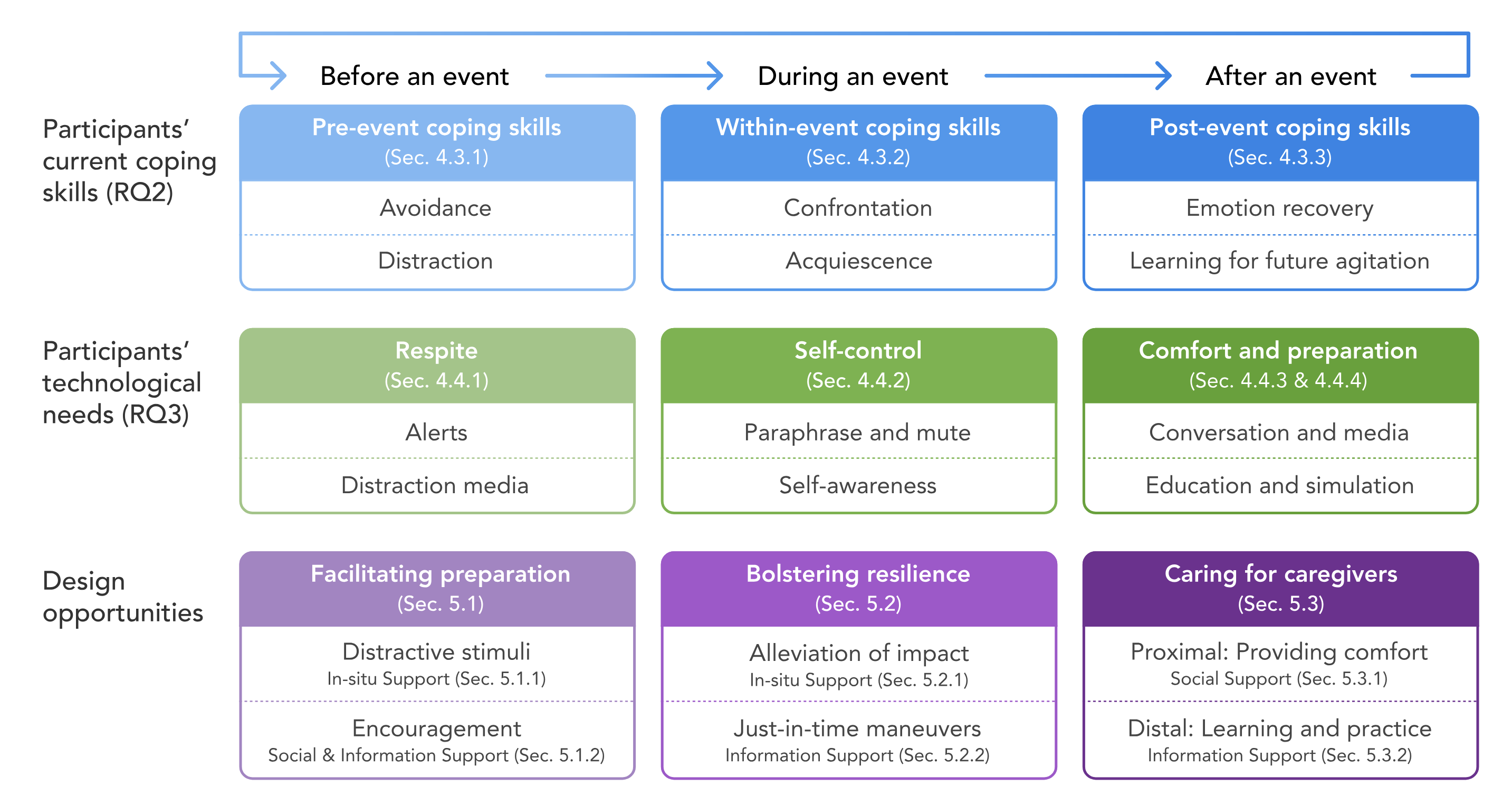Opportunities in Mental Health Support for Informal Dementia Caregivers Suffering from Verbal Agitation
Taewook Kim, Hyeok Kim, Angela C. Roberts, Maia Jacobs, Matthew Kay
ACM Computer-Supported Cooperative Work (CSCW) 2024

We synthesize our findings on current coping strategies (RQ2) and technology suggestions (RQ3) of our participants (informal caregivers) to derive design opportunities for before/during/after verbal agitation.
Abstract
People with dementia (PwD) often present verbal agitation such as cursing, screaming, and persistently complaining. Verbal agitation can impose mental distress on informal caregivers (e.g., family, friends), which may cause severe mental illnesses, such as depression and anxiety disorders. To improve informal caregivers’ mental health, we explore design opportunities by interviewing 11 informal caregivers suffering from verbal agitation of PwD. In particular, we first characterize how the predictability of verbal agitation impacts informal caregivers’ mental health and how caregivers’ coping strategies vary before, during, and after verbal agitation. Based on our findings, we propose design opportunities to improve the mental health of informal caregivers suffering from verbal agitation: distracting PwD (in-situ support; before), prompting just-in-time maneuvers (information support; during), and comfort and education (social & information support; after). We discuss our reflections on cultural disparities between participants. Our work envisions a broader design space for supporting informal caregivers’ well-being and describes when and how that support could be provided.
